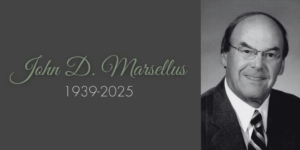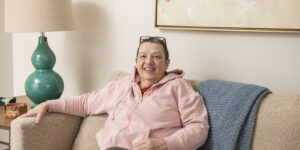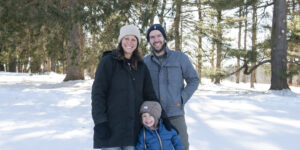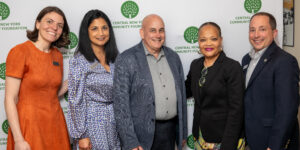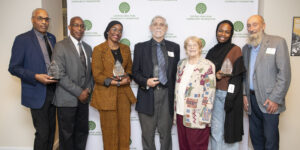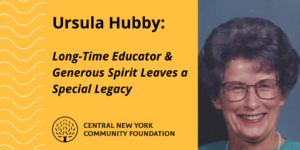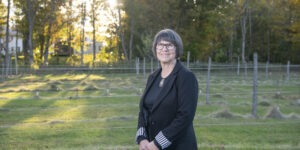August is Black Philanthropy Month! We asked our donors how they came to be philanthropists.
Here’s what Me’Shae Brooks-Rolling had to say:
How did you come to be charitable? Were there influences in your life that got you started?
I have had several influences in my life that have helped me to become charitably and philanthropically minded. First and foremost, my late father was a funeral director and mortician in the Indiana town I grew up in. He came from a legacy of funeral directors in North Carolina before migrating to the Midwest to apprentice under an uncle in Indianapolis before establishing his own business in nearby Anderson. Daddy gave just as much back to the community as it gave to him. For him, it was all about “Not forgetting where you came from”. Furthermore, I learned in my Christian faith that giving can take on a variety of forms: monetary donations; in-kind through giving goods such as canned food, for example; and through the gift of volunteering one’s time. Lastly, I have observed that Syracuse is a very giving community. Folks will come out and support each other’s fundraising efforts in a heartbeat. By these standards, anyone can be philanthropic, and not just the rich.
What do you want Central New York to look like in the future? How can philanthropy be a part of that change?
I would very much like to see Central New York to embrace the mosaic that it is. As with any mid-sized community, we have socioeconomic and racial & ethnic diversity in our mix:
African Americans, LatinX, New Americans, BIPOC, etc. It would be very nice to see everyone working shoulder-to-shoulder to intentionally help elevate LMI (low-to moderate income) and ALICE (Asset Limited, Income Constrained, Employed) populations to middle-class status and the middle-class to affluence. Strategic connections and access are key components of this. The technical definition of poverty is lack of resources. Human capital is one such resource. Philanthropy is not just about giving out handouts (although that most certainly has its place); but is also about teaching the fish how to swim in, so to speak, to effect generational upward socioeconomic mobility.
What do you feel are the greatest needs in our community right now?
I still think financial literacy education is one of the greatest needs in our community right now, especially considering the devastating effect that the pandemic has had on individuals and families. Just as a hurricane or tsunami can drastically change the geographical landscape of a shoreline, so too has the pandemic altered the workforce landscape. It widened the technological gap between the “haves” and the “have nots”, millions dropped out of the workforce to start businesses and embrace new ways of living, business travel may never truly return to pre-COVID levels, etc. Financial Literacy education is vital to all economic strata because proper financial planning helps to serve as a buffer and soften the blow when life’s unexpected events happen; and the education thereof is an equally important precursor. I’ve taught low-income and middle-class clients who have declared, “Where has financial literacy been all of my life? Perhaps I wouldn’t have made many of the mistakes I have made had I been given proper tools and knowledge.” Middle-class consumers are taught how to reduce their consumer debt levels. This can only have a positive net effect on philanthropy and charitable giving. The more people have, the greater ability they have to give.
Is there a quote that sums up or has shaped how you live your life?
“Give, and it shall be given unto you; good measure, pressed down, and shaken together, and running over.” (Luke 6:38) I have most certainly experienced this principle in my life. The purpose of giving, however, is not to “get,” or obtain anything in return. The real purpose of giving both monetarily and non-monetarily is that the need is apparent. Did you know that the primary reason nonprofit organizations exist is because they help fill a void where the government cannot? In doing so, they enhance society for the betterment through their benevolent works and deeds.
Me’Shae Brooks-Rolling is the Executive Director of The Upstate Minority Economic Alliance (UMEA) and is a Certified Educator in Personal Finances. She is a serial business owner and regularly contributes to nonprofit organizations benefitting the Syracuse community.

